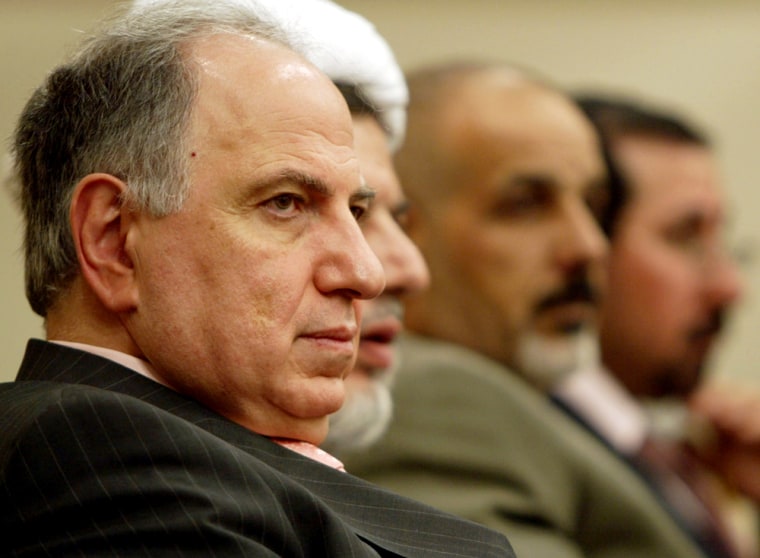Iraq failed to name an oil minister for its new government on Thursday and controversial politician Ahmad Chalabi was appointed acting minister of an industry plagued by sabotage attacks and uncertainty.
Chalabi, speaking to Reuters by telephone shortly after his appointment, said he might only be in the job for “a short time” but he pledged to work to ensure smooth exports and honor contracts struck by the previous government.
With the oil market anxious to see Iraq move toward stability and offer steady crude supplies, Chalabi said, “There will not be abrupt changes. My focus will be stability.”
His comments came as the State Oil Marketing Organization prepared to negotiate crude oil sales volumes of some 1.5 million barrels per day for the second half of 2005.
Prime Minister Ibrahim al-Jaafari, whose government list was approved by parliament on Thursday, has vowed to make permanent appointments swiftly to several ministries for which he tapped acting ministers, such as oil and defense.
But Western and Iraqi oil executives said Chalabi, once tipped to be a leader in Iraq before he fell out with his U.S. backers, might take precious little time to try and make his mark on the oil sector, home to 115 billion barrels of reserves.
Chalabi’s aides believe the former financier could head the ministry indefinitely in the absence of consensus over a permanent replacement.
“Dr. Ahmad may remain oil minister for weeks or months. It depends on reaching a political agreement,” Nabil al-Moussawi, a senior Chalabi aide told Reuters.
No expertise in oil
That would leave Chalabi, who has no expertise in oil, steering the oil industry of the country with the third largest reserves through a turbulent period of suicide bombings and frequent attacks on pipelines.
A Jordanian military court found Chalabi guilty of fraud in 1992. He denied the charges, fled Jordan and filed a law suit in the United States accusing the Jordanian government of framing him.
Chalabi, a Shiite, replaces veteran oil technocrat Thamir al-Ghadbhan at the oil ministry’s helm.
Unlike his predecessors Ghadhban and Ibrahim Bahr al-Uloum, Chalabi -- scion of a Baghdad merchant family -- has no experience in the state-owned oil sector that employs 80,000.
He, too, will face the daunting task of trying to boost oil production in a country where insurgents frequently target oil pipelines as part of a campaign to topple the government.
It remains to be seen if and how Chalabi will negotiate with U.S. companies interested in developing Iraq’s oil reserves, the third largest in the Arab Middle East.
Chalabi, once a staunch U.S. ally, was also named deputy prime minister, marking his political resurgence in a country with many sectarian minefields.
Since then, he has been working to make political ties with influential Iraqi leaders, such as top Shiite cleric Ali al-Sistani. He also has business connections.
But many Iraqis resent Chalabi and other politicians because they say they spent many years abroad while people who lived under Saddam Hussein’s iron grip suffered.
Some Iraqi oil officials expressed reservations over Chalabi’s appointment in part due to his lack of energy expertise
